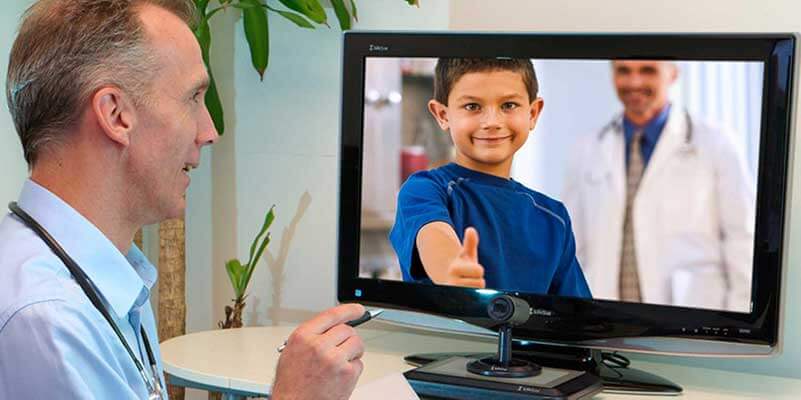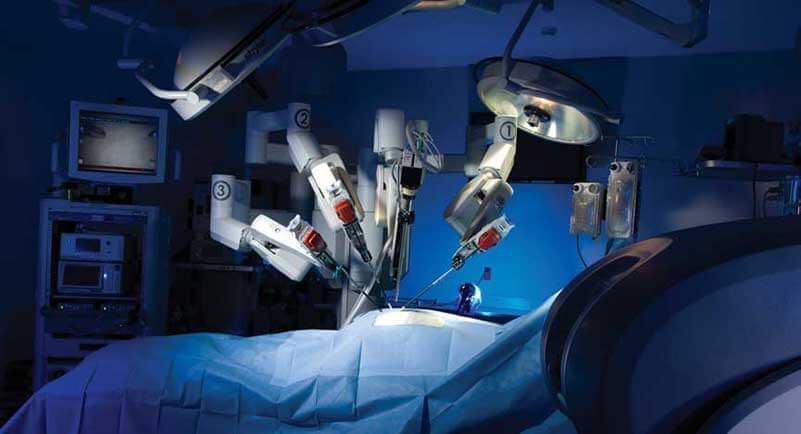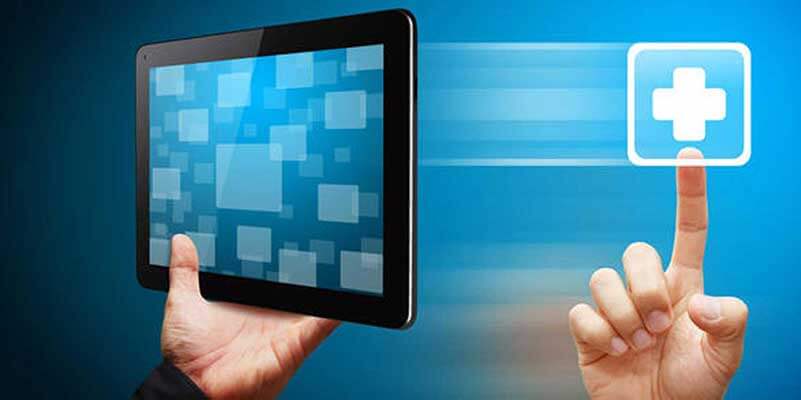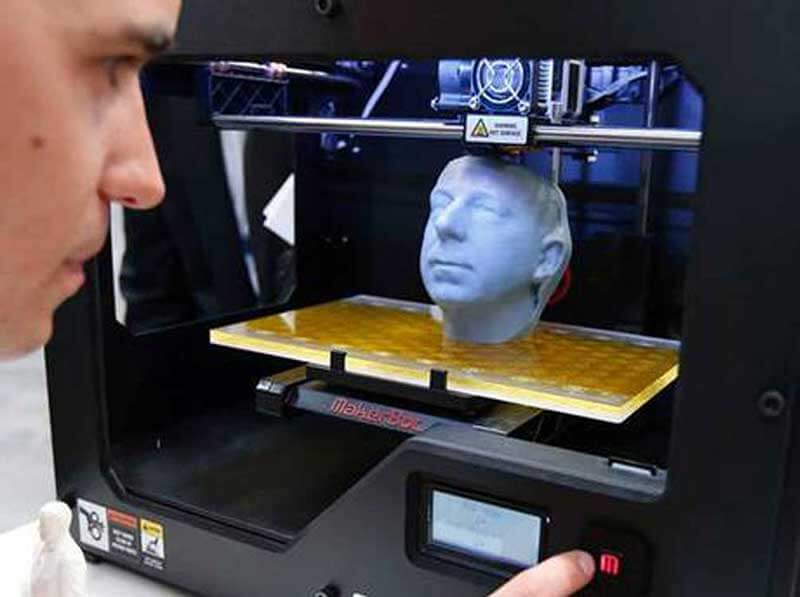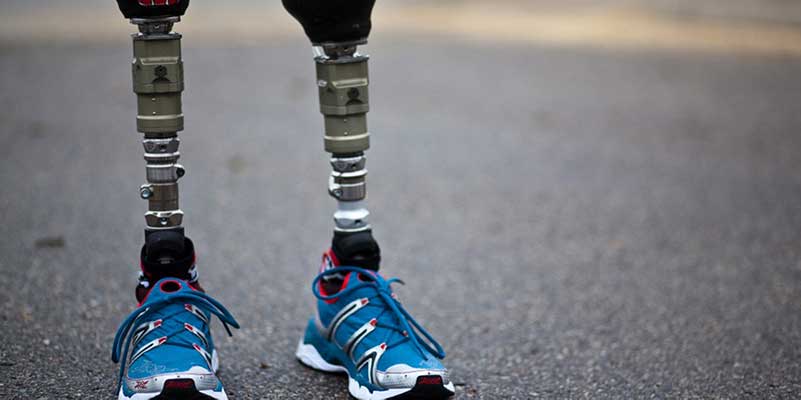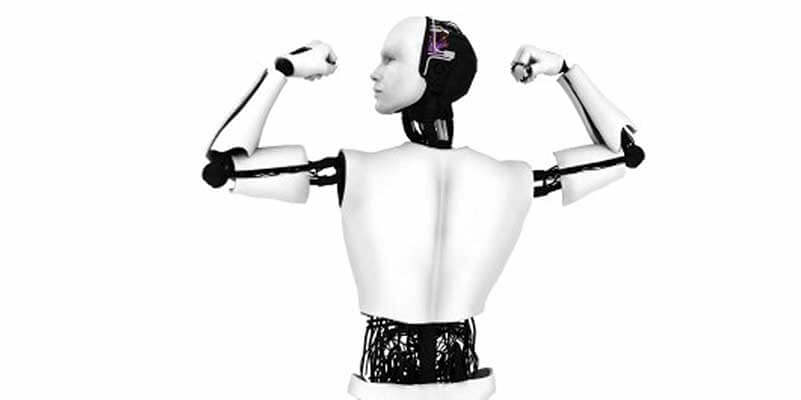Technological advancements in healthcare industry are driving the future of medicine, having a significant impact on the longevity of human life from different perspectives. Smart glasses will help doctors scan their patients to an extent that was never thought of. Gadgets such as Google lens are already proving useful in keeping track of diabetic patients, and we can only imagine what impact robotic surgeries through the likes of da Vinci Surgical System could have in the future! Visits to the doctors will be replaced by home care through telemedicine, and terminal patients will not be obliged to wait on endless waiting lists for organ transplantation.
Growing new organs in laboratories, making robotic limbs, and 3D/4D printing of organs will give people a new lease of life! Can we even predict what will nanobots in our bloodstreams be able to do when a virus attacks our system? Will humans be half homo-sapiens and half bionics just to live longer? Longevity was always a question that dazzled mankind. Scientists will eternally strive to somehow cure people of dying and discover living forever. Robotics and singularity is one of the things that might help humanity transfer to a being with more life and sustainability. Healthcare is perhaps the most important aspect of our life and an industry where every technological breakthrough is significant due to its positive impact on human beings.
1. Telemedicine and remote care
Days of making a house call to a doctor are making a huge comeback! We are going to communicate with our doctors through video conferencing, smartphone applications, and VoiP on our laptops and other gadgets. They will be able to look at our medical records electronically and give us the diagnosis and prescriptions completely remotely, which will have a huge impact on care of the elderly! Taking care of our elders is a huge responsibility. It does not only take time and physical effort but also a lot of psychological strength and courage. Many people choose to send their elders to care homes or hire professional care. This is where remote care comes in. Being able to have someone watch over your parents remotely, while they are completely safe at home, is invaluable. Remote care will especially take effect through mobile robots with on-screen display of our doctors and nurses while they are attending to patients in their hospital rooms.
Robot doctors will become a frequent sight and installing such a robot at a house where your grandparents live, combined with the video option to communicate with a doctor who can track what the robot does and commands them, will be a huge asset to future medicine. We are habituated to visiting the doctor in person, since we believe that we can only be cured if we talk to the doctor and get our prescription from him. But what if he can come to us through a telemedicine operational application or device? Wasting time going to the doctors will be a thing of the past. We will receive prescriptions and quick medical advices or diagnosis from our home itself, just with a click or a touch on our screen, and our doctor will assist us in no time. If the device can give him data on our health simply by our touch, sensing our temperature, throat ache or anything else, it would give the same result, but most importantly we would not have to undergo the hassles in a hospital. No lines, no waiting and scheduling, no situations where you cannot get up from your bed from high temperature just to get some medicine. Who would object that? Are we ready to not face our doctor directly but to be cured only through video links, displays, and robotic mobile contact?
See also: 6 healthcare technologies that will render your family doctor obsolete
2. Surgical and humanoid robots to take care of our health
Anyone who has had a surgery in his life knows what it means to completely give your life in hands of a surgeon. Now, could you imagine entrusting your life to a machine with knives and surgical tools? The future of robotic surgery is limited only by imagination. Future surgeons will only program the robot for the surgery and merely supervise as the robot performs most of the tasks. It is hard to make this complete transition in such an important aspect of human life, but we should not fear it. Every great step in technology takes courage, and we cannot make progress without such events. The da Vinci Surgical System is already performing minimally invasive surgeries, which means this technology is already out there! Will robotic surgeons completely take over old school human surgeons? Can we let ourselves completely in the hands of robots when it comes to putting our lives in their hands? Robots are already doing surgeries, they are precise and safe, and in future, they will be even more. Why would we not trust them? It is hard for a human being after all these centuries to put itself in the hands of a machine. But aren’t we doing it in other industries as well? Psychologically, it is hard to put faith in a robot healing you, but if he does a better job at it than us, it is worth a shot.
Imagine nanobots flowing in your bloodstream and dealing with all possible attacks of viruses on your body, cured and dealt with without you knowing of it? It does sound science fiction, although nanobots are something that science is pondering about pretty seriously these days. There are many types of microbot ideas, but nanobots in bloodstream is probably one of the most mind-blowing of them all. Let`s say you get sick, you get a flu, and your doctor injects nanobots inside your bloodstream. You go to work and rapidly your health state goes better, you stop sneezing, coughing, and your body temperature is great all of a sudden. Nanobots cured it, destroyed the virus, and now they disintegrate in your bloodstream without doing any damage! Possibilities are huge, and all this will be possible in the coming decades, where robots will take over the area of medical operations.
3. The Gamification in the healthcare industry
Are games more than simply killing time? Can we make healthcare more personalized by including games in the overall experience? Applications on smartphones, gadgets, and even complex machines that deliver a gamifying experience will definitely help both younger and older generations connect themselves easily to the prospect of care and cure for any disease. Most industries are implementing gamification nowadays, and healthcare is no stranger to this. Human beings are naturally driven to having fun while doing anything, and this is what gamification of the whole experience will give us.
Games to make eye sight better, games to improve mobility of disabled people and games to help autistic children in their socialization are just some of the examples which show how games have their role to play in medicine and curing people suffering from different disorders and diseases. Is healthcare something that we can gamify, keeping in mind the seriousness of health situations? Everything is easier through a game, studies show. Much better concentration and feeling of security is bestowed in both adults and especially children if you present their treatments through a game. Why would we be so serious? Treating a patient is a serious thing, but a way to cure him does not necessarily have to be. It is important to help a patient, but cure should not be boring.
4. 3D printing revolution in healthcare
Ever heard of 3D printing? If you have, you also probably have heard about printing plastics, such as figurines, badges or even weapons. Can you imagine a human organ coming out of the printer? Yeah, it sounds awkward, and it is happening, and we cannot say it is bad. On the contrary, it sounds great. 3D printing of organs is already happening but on a lower scale. In the next decade, we can expect a whole revolution of this magnificent trend, especially in healthcare. Can we expect human organs directly coming out of a printer transplanted? Will humans trust these organs? Can doctors relate to putting a 3D printed heart or spleen in someone’s body? If it functions just like a real organ, then why not? 3D printing has a wide spectrum of applications; however, using it to print organs that can be reused is something that sounds astonishing as of now.
There is no reason to not put this great technology to use in this way if printed organs do not get rejected by the body. People anyway accept organs from other dead or living people; this way, they would get them in unlimited quantity, without worrying that they would not make it on time. Many ill patients are desperately waiting on long waiting lists for organ transplantation. People are losing their lives because of this and black markets are thriving. Making a fully functional organ through a 3D printer does sound awkward and unreliable, but if it works with your metabolism, then why not go for it? What matters is saving a life, isn’t it? With the implementation of this technology, many will be saved. We hope it arrives sooner than later.
5. Iron Man: Powered exoskeletons and prosthetics
Can you imagine a person that has never been able to walk before, to stand up from his wheelchair and walk without any problems in his legs and feet? Exoskeletons and prosthetic limbs such as i-limb will make people feel like they never have lost a limb or like they were never disabled! People will have an opportunity to walk without wheelchairs, run, play sports, swim, and do whatever they were not capable of while they were disabled. These technologies will completely disrupt how we look on people that have these problems, and even make them have„Rights to bionics“. Every person has a right to be like the next one. This includes things that we take for granted, such as being able to walk, hear, or take a glass of water with your hand.
Why cannot we give everyone a right for that? Of course, these exoskeletons might be fuel for powersuits and military operations, making their use more sinister than it looks, but we need to focus on technology that helps mankind instead of aiding its destruction. A man who is ill only has one wish, i.e., to get well, while the healthy one has a thousand wishes. Putting these new prosthetics to use, we will see more people doing things they never could before, and that is what we would like to see. This technology will definitely have a huge impact on human health and improving life of disabled people; it will change lives for sure. Enabling walking for someone who has never walked will be a miracle indeed, and as we can see, sometimes miracles can come true. Smart prosthetics can be connected to other devices, and help track heart pulse or other body functions.
6. Rise of the cyborg culture
A new generation of people who choose to live with technology inside their bodies will emerge in the future. We have only talked about this possibility in sci-fi stories and movies, but now it is showing up as a possible reality! Are we going to opt for adding metals and circuits to our bodies at one point, just to enhance our lives and physical abilities? Can our descendants completely transform into superb human beings with these modifications and change perspectives of human kind to jump, run, work harder, and faster? Whether we like it or not, cyborgs are coming. Some people already have tried to make themselves cyborgs with implants and any possible technology they could hook up on them when it came out. Being first at something would ensure unique assets, and being unique when cyborg people are just around the corner is something truly magnificent. Many will strive to be the first people with chips in them, take electronic pills, or implement bionic organ parts to look more like a Terminator. These humans will have new abilities, some things closer and easier to reach, but they will still keep flaws of mankind, until they really become one with the machine. It is still not a real cyborg culture, but it shows us that there is potential for it as long as there are resources existing. Real cyborgs are still far away, but when they come, and they will, world will change forever and we don’t know whether it will be for better or worse. From a medical perspective, we can expect longer life and easier “repair”, but from an ethical and moral aspect, everything will be doubtful.
How will it all unravel?
Healthcare will almost certainly be hit with a major technological change in the future. This would be primarily because the world is funding all possible types of research to expand our knowledge about the human metabolism and ways to prevent sickness or, ultimately, death. Printing organs through a 3D printer to fix the problem of lack in transplantations, bionic limbs to ensure everyone has the same abilities, installing nanobots in our bodies to cure us, and robots performing our surgeries will be something completely normal in the future. Unimaginable things are transforming medicine, and we can hope it is going to be as great as it sounds. In order to make huge breakthroughs in medicine, technology has to take risks and experiment, and it takes great courage to do so. How can we expect to cure cancer if we do not try new ways of healing ourselves? Making new organs for patients that need them might end up as a new human right.
A right to organs or limbs! Bionic men will not be movie material anymore – they will walk and work amongst us, they will enter into relationships, and have children. Mixing men with machines will ensure longevity of life, but the struggle for immortality will most likely be left as a dream. Information means power, but not all information will benefit medicine. Only data that is structured and properly analyzed should actually be used for the better of human kind. Electronic records reachable anywhere anytime are the future of medical data. Why would specialists wait on delivering files when they can look at all of it already analyzed by the computer and have a solution in front of them? It might be even provided by a robot doctor himself, if it is based on previously gathered data. Why not?! People put their trust in a doctor, but if we would be able to analyze all the data and knowledge a doctor has, and use it with predictive analysis to help ourselves, would not we have a better chance for a result? Possibly, because there will always be an opinion that machines are not as smart as a human being, and hence they cannot perceive what we can. Isn’t it about time that we start putting our fate in machines when it comes to our health instead of a real life doctor? Future will show. We definitely have a lot of things in store.
Share via:



